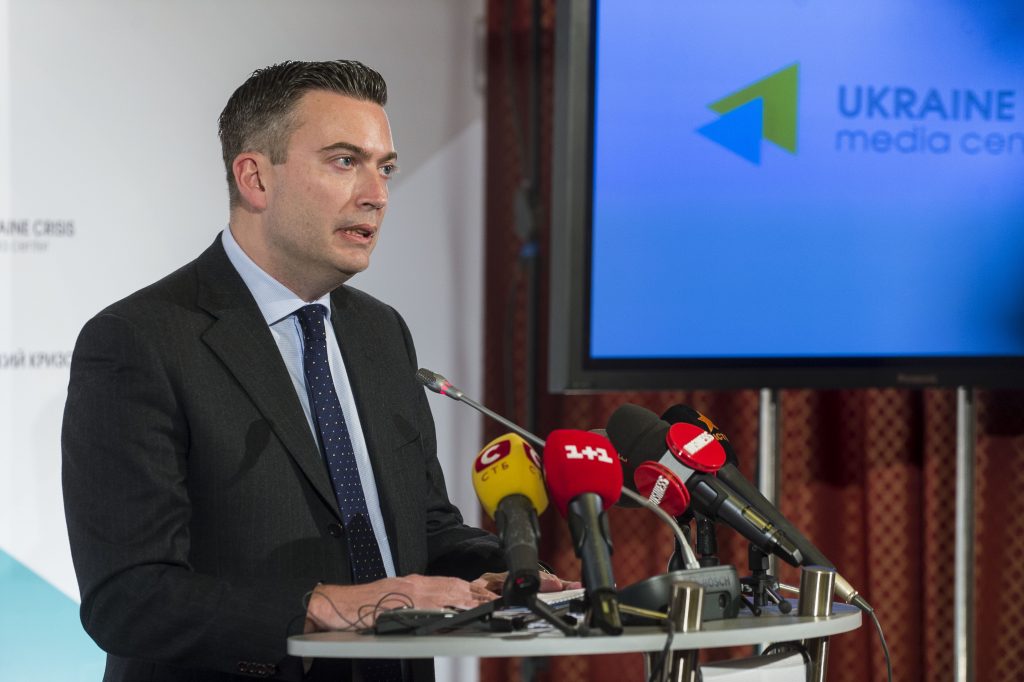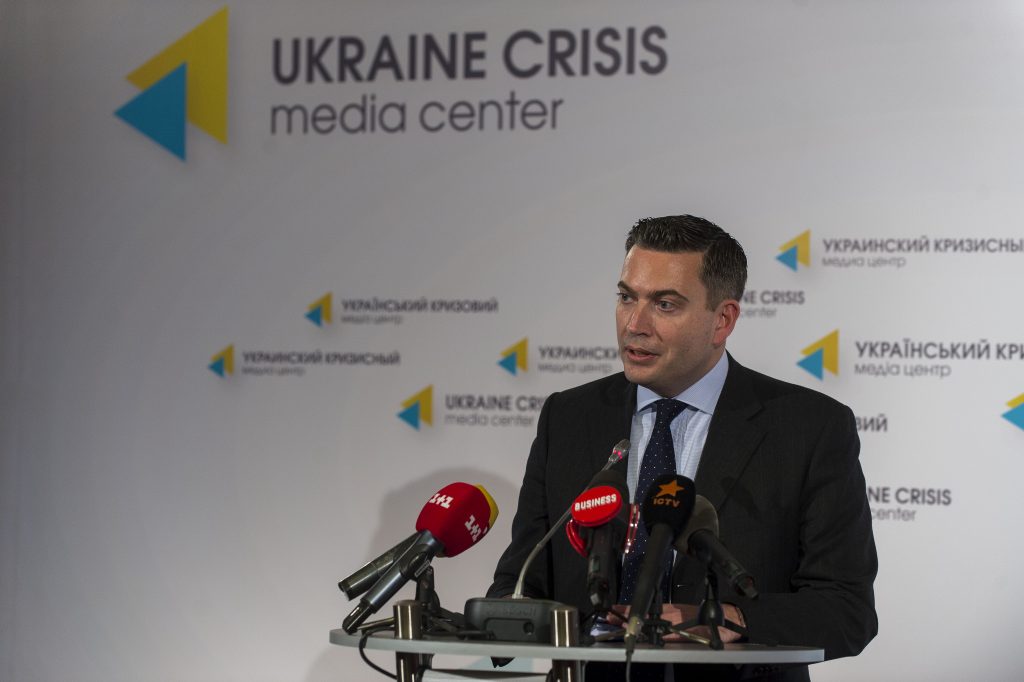Kyiv, 7 May 2014 – IMF Executive Board approved $17.01 billion loan on April 30, 2014 to support Ukraine’s economic reform program. Jerome Vacher, IMF Resident Representative in Ukraine, talked during the press briefing at the Ukrainian Crisis Media Center about IMF’s support program and key reforms to be done in Ukraine.
Mr.Vacher mentioned that the new government that took office in late February has quickly taken steps toward restoring macroeconomic and financial stability. However, in addition to entrenching macroeconomic stability, Ukraine needs to undertake deep-reaching structural reforms to reduce imbalances, improve governance and the business climate––Ukraine’s long-standing weaknesses––and move toward balanced growth. An emphasis on capacity building is critically needed to address the legacy of ad hoc policy design and implementation.
Ukraine was faced with a number of urgent challenges, including dwindling official foreign exchange reserves and the possibility of not being able to meet its external obligations, and the authorities have embarked on a comprehensive and ambitious reform program designed to address Ukraine’s macroeconomic imbalances and structural weaknesses. In terms of key reforms, the authorities have committed to:
• Maintain a flexible exchange rate to restore competitiveness and foster accumulation of reserves, and focus monetary policy on domestic price stability. Going forward, support competitiveness by keeping public and minimum wage increases in line with productivity growth.
• Maintain confidence in the financial system and strengthen the infrastructure for financial regulation and supervision. Ensure that banks strengthen their balance sheets as necessary.
• Meet near-term fiscal obligations and gradually reduce the fiscal deficit. Stabilize budget revenue and embark on a medium-term fiscal adjustment path that distributes the burden of adjustment equitably.
• Achieve a self-sustained energy sector and reduce its fiscal drain by eliminating Naftogaz’s deficit by 2018 as a key benchmark toward the goal of energy independence.
• Implement comprehensive structural reforms, including in the areas of public procurement and tax administration, to help reduce corruption, improve the business climate, and on this basis, achieve high and sustainable growth.
IMF’s assistance to Ukraine envisages not only financial support, Mr Vacher said, but a number of technical assistance missions that will come within the next two months to Ukraine to help in reforms. The program’s performance is expected to be first reviewed in July.
Mr Jérôme Vacher, a French national, has been a Fund economist since 2002. Mr Jérôme Vacher’s previous country experience in the European Department includes assignments on Lithuania (2009-10) and Belarus (2003-04) and Spain (2010-2013). He has also worked in the Monetary and Capital Markets Department for 5 years, covering financial sector issues, notably in South Africa and the UAE.
Watch video [icon icon=’Icomoon/icomoon-youtube-2′]





